school-to-prison pipeline
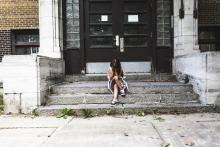
“We’ve come to our nation’s capital to cash a check,” Martin Luther King, Jr. said in the “I Have a Dream” speech. The Founders of the United States had signed a metaphorical promissory note that guaranteed equal rights for all people, he said.
“It is obvious today that America has defaulted on this promissory note insofar as her citizens of color are concerned,” King concluded.
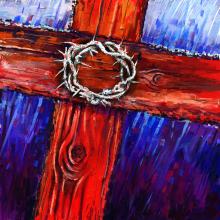
When we discuss the gospel of Jesus Christ, we realize that it is a revolutionary message asking us to love our enemies, to do good to those who curse us, and even harder, to turn the other cheek. The gospel is going beyond that. It is asking us to receive, stand, advocate for the poor, incarcerated, and those living in the margins who have been pushed out by the institutions of our society. Jesus took many risks at times during his ministry, and when he started turning over tables and exposing the priests’ racket of selling sacrifices, it did not work out so well for him.
I’m not asking people to go and get themselves killed, but just ask yourself, “How much of the gospel am I willing to perform?”
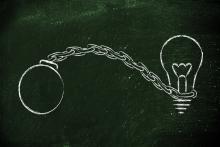
September is often associated with the celebratory beginning of a new school year. It’s a time of hopeful anticipation for students, parents, and teachers filled with new school supplies and new friends.
In many communities, however, the beginning of the school year is a cause for concern and anxiety.
Instead of hallways filled with artwork and sports trophies, many students will walk into prison-like environments complete with metal detectors, and the presence of police and armed security officers. These officers have more than a chilling effect. They also have the authority to arrest students, often for minor misbehavior. When you couple the harshness of the school environment with zero tolerance policies that criminalize children’s non-violent infractions like being late to class, violating a dress code, or even chewing gum, one can begin to see the school discipline crisis.
The patchwork of overly harsh disciplinary policies that funnel children directly from the classroom to the juvenile justice system is referred to as the school-to-prison pipeline. In schools across America, students, especially students of color, who should be sent to the guidance counselor to find out what’s really wrong end up at the police station. These policies are expensive, unjust, and ineffective. They also lower academic achievement, lead to dropout, and do little to make schools safer.
Even more troubling, we find that the rules are different for children of color, who are punished more often and more severely than white students for the same offenses. These students are not behaving any worse than others, but they are disciplined at a higher rate because of racial bias. These same patterns we see in schools are also playing out in the criminal justice system: African Americans are imprisoned at higher rates and given more severe sentences than whites for the same offenses.
The school-to-prison pipeline is a moral and racial justice crisis. Solving the problem will require an all-hands-on-deck solution.
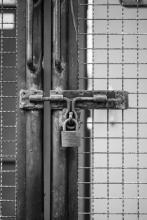
As I stated yesterday, I believe that America’s justice system is broken and in need of desperate repair. One of those areas is the practice of putting our citizens to death, something I believe that all Jesus People should resoundingly oppose.
When I was a conservative evangelical, I was a huge supporter of capital punishment for all of the standard reasons. I even had a quick response when folks correctly brought up the hypocrisy of being against abortion while simultaneously being pro-death penalty, a position I previously argued you can’t hold and still call yourself “pro-life.”
However, when I decided to follow Jesus instead of simply being a Christian who paid him hollow worship while conveniently ignoring the red words, I was forced to abandon my support of the death penalty (and abandon my support of violence in general) as part of Following Jesus 101.
While America’s broken justice system is a complex issue, perhaps the first area we can fix is by abolishing the death penalty in all 50 states. Here’s why I think Jesus People should be leading the charge on this issue:

In my lifetime I’ve driven on three roadways named after Martin Luther King, Jr. One was a street, another a boulevard, and the third a highway. And whether by cosmic irony or human design, each of these roadways passes through communities of significant poverty and color, namely black. Around these roadways are boarded up storefronts, crack and heroin dens (think The Wire), condemned row houses, and inevitably, always – public schools.
From 2001 to 2006 I left the safety of the pulpit to teach in the schools of Baltimore and Washington, D.C., pursuing a call to care for the proverbial least of these (it’s always pained me to think how I might feel to be called this, as in hey, you least of these, can I help you with anything? – but that’s a reflection for another time). I left also the safety of a suburban megachurch, where all you needed to do to understand the socioeconomic standing of its members was to walk through the parking lot, and the familiar cultural context of my Korean-American upbringing.
This article, however, is not about me. It’s about beautiful, creative, energetic, and intelligent children — kids who, as the least of these, are too often treated as such. There is no limit to blame: from the mother who comes to school drunk, a prostitute, publically shaming her son (who loves her nonetheless and gets beaten by the other boys defending her honor); to the worn-out teacher who drags a “difficult” child into the bathroom, bruising her arms and threatening her with verbal vitriol and rage; to the administration that promotes student after student, knowing they are years behind, but too old to remain; to the system that maintains, protects, and worships a biblical truism, that for to all those who have, more will be given, and they will have an abundance; but from those who have nothing, even what they have will be taken away (Mt.25:29).

I remember the first time I ever got straight A’s. It was also the last time.
I was in Mrs. Becker’s 4th grade class at John Story Jenks School in Philadelphia. I was always good at reading, I LOVED science projects, and art class was fun — but math? Ugh. Math was my nemesis. In 4thgrade the times tables felt as insurmountable as that dang rope everybody else could whiz up and down in gym class. I just couldn’t figure it out. In fact, to this day, I haven’t figured the rope.
So, my father became my times tables drill sergeant and resorted to straight memorization tactics, making me write each one 10 times. Then he sat across from me at the dining room table and drilled me on the times tables until I said them in my sleep. It was brutal … and oddly, one of the fondest memories of my elementary school years. Not only did I master multiplication, but I also learned something much more important. When my report card came back that quarter with straight A’s, I learned that I could learn!
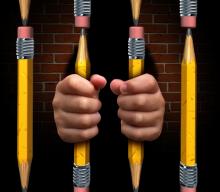
Over the last few years we have heard much about the school to prison pipeline. According to the ACLU, it is:
a disturbing national trend wherein children are funneled out of public schools and into the juvenile and criminal justice systems. Many of these children have learning disabilities or histories of poverty, abuse or neglect, and would benefit from additional educational and counseling services. Instead, they are isolated, punished and pushed out.
The Children’s Defense Fund argues that because of a lack of early childhood education and healthy beginnings, this epidemic begins before a child is old enough to enroll in school, defining the problem as the Cradle to Prison pipeline. Organizations such as the Advancement Project, the Legal Defense Fund, and many others too have defined the school-to-prison pipeline as just another level to the mass incarceration epidemic and one of the most disturbing injustices we face today.
We know that the pipeline is undergirded by Zero Tolerance policies, mass expulsions, unprecedented school arrests, inadequate school funding, and myriad other unjust policies that either criminalize our children or rob them of the resources they need to be successful. We also know that high-school dropout is certainly a station on the pipeline. In many urban centers the dropout rate hovers around 50 percent, and some data suggests 7,000 students drop out of school every day. What happens to kids that drop out of school? Where do kids who are expelled end up?